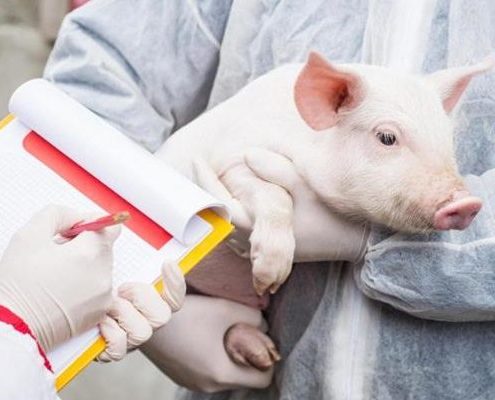Scientists at the University of Alabama have successfully performed a surgery to replace both of a human’s kidneys with genetically modified pig organs.
The pig kidneys were transplanted into a patient who had previously been diagnosed as brain dead, with the patient’s family’s permission.
For the first time in medical history, not only were the donor organs not rejected, but they began to function normally – producing urine and ridding the new host’s body of toxic metabolic waste.
A detailed description of the unique surgery was peer-reviewed and published this week in JAMA Surgery.
While this case remains unique, it offers hope to tens of thousands of patients with chronic kidney disease who are in need of a transplant.
Worldwide, the demand for donor organs far exceeds the supply. In the U.S., statistics show that two out of five patients waiting for a transplant die within five years of diagnosis without ever receiving a suitable donor organ.

Strictly speaking, this is not the first successful transplant of a pig kidney into a human.
There have been two similar attempts in recent years, as reported by the BBC.
To prevent the patient’s body from rejecting the donor organ as foreign after the operation, pig kidneys are grown specifically for transplant and “humanized” through genetic engineering.
In the DNA sequence, the scientists find and “switch off” four exclusively pig genes (GTKO, CMAH, B4GALNT2, GHR) and then add six human genes (CD46, CD55, CD47, THBD, PROCR, HMOX1).
However, only this time the doctors managed to get the donor organ to work completely normally and perform all its functions, the most important of which is blood filtration and cleansing the body of harmful metabolic waste products (mainly creatinine).

